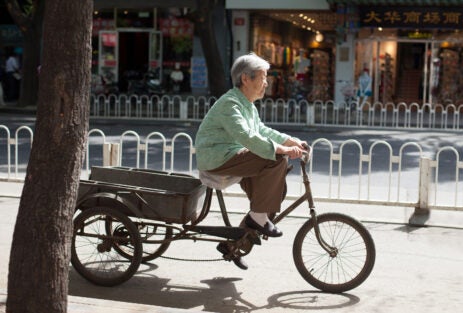May 8, 2024—As China’s aging population soars, the country must reassess how and from whom elderly people receive care, according to experts.
Harvard T.H. Chan School of Public Health’s Winnie Yip, professor of the practice of global health policy and economics, and William Hsiao, emeritus professor of economics, were among the experts quoted about the issue in an April 30 ChinaDaily article.
Yip explained that, historically, seniors have relied on their families for care, and still today most prefer to remain at home rather than seek facility-based care. As cultural expectations shift and economic pressures mount, however, new systems must emerge.
“In China, there’s a notable distribution where 90 percent of individuals prefer to receive care at home, 7 percent opt for community-based care, and a mere 3 percent turn to hospitals,” Yip said. “This situation necessitates a comprehensive reform of the long-term care insurance system to ensure the well-being of the elderly, regardless of their financial status.”
In the future, she noted, professional caregivers are likely to play a greater role in helping families care for their elderly relatives. But standards and training for these caregivers are still in the process of being established.
Hsiao added that expanding the caregiving profession is just one investment China must make to support elders’ health care and social needs. The government should establish priorities for this population’s wellbeing and begin guiding the allocation of resources accordingly, he said.
Read the ChinaDaily article: Aging population forces rethink on family duties, healthcare
Photo: iStock/yocamon
